The Catalyst Killing - [16]
I would never have dreamed that I would ever want to go there. And my first attempt was a bit of a fiasco. The door was locked and the lights were off, and there was no response to my rather aggressive use of the doorbell.
I was standing outside on the pavement wondering if I should drive to the address I had in Sogn Halls of Residence, when a bus stopped a short way down the street.
Even on this otherwise sad day, I almost burst out laughing when I saw the only passenger who got off. It was the first time I had ever recognized someone because I could not see their face. This was because she was reading an unusually large and thick book as she got off the bus and crossed the road. All that was visible below the book covers was a pair of blue jeans and a multicoloured sweatshirt, and above, some fair hair.
Judging from the front cover, the book was a single-volume work on nineteenth-century English literature. It certainly looked as though it contained most of what could be written about the subject.
When she was only a few feet away, I could not resist saying: ‘Miss Filtvedt Bentsen, I presume?’
She came to an abrupt halt, lowered the book and looked at me, more than a little bewildered. The twinkle in her eye rapidly changed to curiosity when I produced my police ID. The first thing I heard her say was a surprise nonetheless.
‘How exciting. Am I about to be arrested? In which case, what for?’
She looked up at me with a teasing smile, but was serious again as soon as I said that I unfortunately had to ask her some questions regarding the investigation into the death of Marie Morgenstierne.
‘Oh, so it was poor Marie? I heard that a young woman had been murdered at Smestad on the radio while I was eating my lunch today. They didn’t give her name, but I was anxious to know whether it could have been her or Kristine Larsen. Then I reasoned that the chances of that were very slim. What a terrible thing to happen, and I will of course answer any questions you might have about the case.’
I stared at her, fascinated, and then shook the hand she held out towards me. Her handshake was firm and her expression somehow both concentrated and relaxed at the same time. I was surprised to notice a necklace with a small cross around her neck. I had heard that there were Christian socialists in the SPP, but had never encountered one before.
It occurred to me that she also disproved the claim that one of my colleagues had made that if there were attractive women in the SPP, he had certainly never seen one. Her fair hair fluttered in the wind. It seemed to me that there was something refreshing and free-spirited about Miriam Filtvedt Bentsen, something that made me more interested in her than the other three members of the group.
I nodded my agreement as soon as she pulled a key from her jacket pocket and suggested that we should go and sit down in the party office.
The SPP office was even smaller, dustier, more overflowing with paper and more deserted than I had imagined. There was no danger of us being interrupted as we sat on our chairs by a desk that looked like it was about to collapse.
Miriam Filtvedt Bentsen had now very definitely closed her book and given me all her attention. She leaned across the desk with obvious interest and concentration. I of course could not be seen to be any different. So five minutes after meeting for the first time, we were thus suddenly sitting in deep and focused conversation, our faces only inches from each other.
Miriam Filtvedt Bentsen quickly proved to have a considerably more nuanced view of Falko Reinhardt than the others who had been at the cabin when he disappeared. She agreed that he was an extremely intelligent and charismatic person, and obviously also very well read. He was perhaps one of the best linguists she had ever met. As a socialist, however, he was both too simplistic and too egoistic, and the group had acted too much like a personal fan club and too little like a political work group. The leader of the group was, according to Miriam, ‘one of those people who believed that the road was built because he started his car’.
Also, if Falko Reinhardt was a genius, he was a very distracted genius, according to Miriam Filtvedt Bentsen. She commented with a more sadistic than sympathetic tinkle of laughter that he often wrote lists about things, but the problems were rarely solved as he then forgot where he had put the lists.
In addition, Miriam Filtvedt Bentsen thought that when they were at the cabin, and in the weeks leading up to the trip, Falko had been troubled by something, but she did not know whether it was political or personal. She had on one occasion asked him outright, but he had not wanted to answer.
As for Marie Morgenstierne, Miriam Filtvedt Bentsen considered her a sensible and philosophical young woman who, ‘like far too many other young women today’, had lived in the shadow of her boyfriend. However, she thought that the relationship between Falko and Marie had been good up to the point of his disappearance. Miriam Filtvedt Bentsen had never met Marie Morgenstierne’s parents, nor Falko Reinhardt’s – or certainly not as far as she knew, she added with a mildly ironic smile. She had had regular contact with Marie herself until the split in spring 1969, after which they had never spoken again.
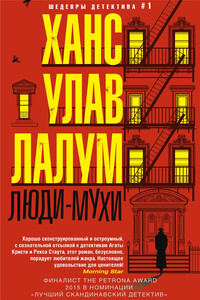
Убит бывший лидер норвежского Сопротивления и бывший член кабинета министров Харальд Олесен. Его тело обнаружено в запертой квартире, следов взлома нет, орудие убийства отсутствует. На звук выстрела к двери Олесена сбежались все соседи, но никого не увидели. Инспектор уголовного розыска Колбьёрн Кристиансен считает, что убийство, скорее всего, совершил кто-то из них. Более того, он полагает, что их показания лживы.
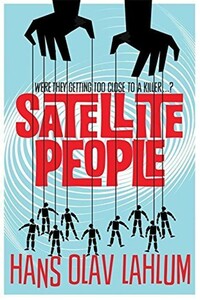
A gripping, evocative, and ingenious mystery which pays homage to Agatha Christie, Satellite People is the second Norwegian mystery in Hans Olav Lahlum's series. Oslo, 1969: When a wealthy man collapses and dies during a dinner party, Norwegian Police Inspector Kolbjorn Kristiansen, known as K2, is left shaken. For the victim, Magdalon Schelderup, a multimillionaire businessman and former resistance fighter, had contacted him only the day before, fearing for his life. It soon becomes clear that every one of Schelderup's 10 dinner guests is a suspect in the case.
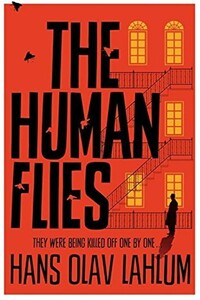
Oslo, 1968: ambitious young detective Inspector Kolbjorn Kristiansen is called to an apartment block, where a man has been found murdered. The victim, Harald Olesen, was a legendary hero of the Resistance during the Nazi occupation, and at first it is difficult to imagine who could have wanted him dead. But as Detective Inspector Kolbjorn Kristiansen (known as K2) begins to investigate, it seems clear that the murderer could only be one of Olesen's fellow tenants in the building. Soon, with the help of Patricia – a brilliant young woman confined to a wheelchair following a terrible accident – K2 will begin to untangle the web of lies surrounding Olesen's neighbors; each of whom, it seems, had their own reasons for wanting Olesen dead.
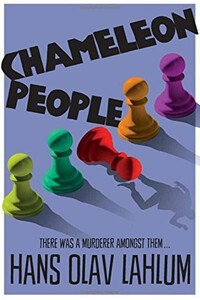
From the international bestselling author, Hans Olav Lahlum, comes Chameleon People, the fourth murder mystery in the K2 and Patricia series.1972. On a cold March morning the weekend peace is broken when a frantic young cyclist rings on Inspector Kolbjorn 'K2' Kristiansen's doorbell, desperate to speak to the detective.Compelled to help, K2 lets the boy inside, only to discover that he is being pursued by K2's colleagues in the Oslo police. A bloody knife is quickly found in the young man's pocket: a knife that matches the stab wounds of a politician murdered just a few streets away.The evidence seems clear-cut, and the arrest couldn't be easier.
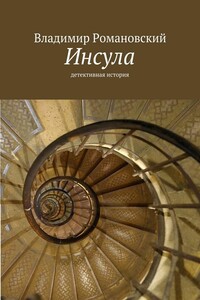
Детективная история, произошедшая в Санкт-Петербурге. Обычные люди в необычных обстоятельствах. Любовь, ненависть, жадность, драки и власть.
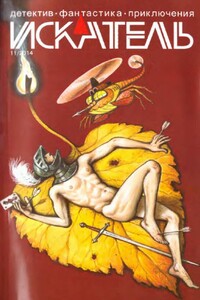
«ИСКАТЕЛЬ» — советский и российский литературный альманах. Издаётся с 1961 года. Публикует фантастические, приключенческие, детективные, военно-патриотические произведения, научно-популярные очерки и статьи. В 1961–1996 годах — литературное приложение к журналу «Вокруг света», с 1996 года — независимое издание.В 1961–1996 годах выходил шесть раз в год, в 1997–2002 годах — ежемесячно; с 2003 года выходит непериодически.Содержание:Анатолий Королев ПОЛИЦЕЙСКИЙ (повесть)Олег Быстров УКРАДИ МОЮ ЖИЗНЬ (окончание) (повесть)Владимир Лебедев ГОСТИ ИЗ НИОТКУДА.
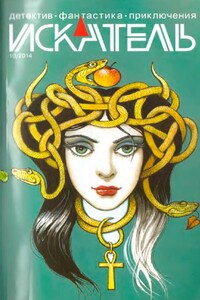
«ИСКАТЕЛЬ» — советский и российский литературный альманах. Издается с 1961 года. Публикует фантастические, приключенческие, детективные, военно-патриотические произведения, научно-популярные очерки и статьи. В 1961–1996 годах — литературное приложение к журналу «Вокруг света», с 1996 года — независимое издание.В 1961–1996 годах выходил шесть раз в год, в 1997–2002 годах — ежемесячно; с 2003 года выходит непериодически.Содержание:Олег Быстров УКРАДИ МОЮ ЖИЗНЬ (повесть);Петр Любестовский КЛЕТКА ДЛЯ НУТРИИ (повесть)
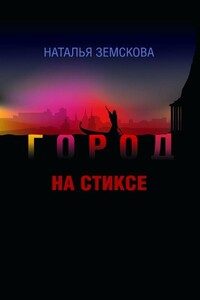
Наталья Земскова — журналист, театральный критик. В 2010 г. в издательстве «Астрель» (Санкт-Петербург) вышел её роман «Детородный возраст», который выдержал несколько переизданий. Остросюжетный роман «Город на Стиксе» — вторая книга писательницы. Молодая героиня, мечтает выйти замуж и уехать из забитого новостройками областного центра. Но вот у неё на глазах оживают тайны и легенды большого губернского города в центре России, судьбы талантливых людей, живущих рядом с нею. Роман «Город на Стиксе» — о выборе художника — провинция или столица? О том, чем рано или поздно приходится расплачиваться современному человеку, не верящему ни в Бога, ни в черта, а только в свой дар — за каждый неверный шаг.
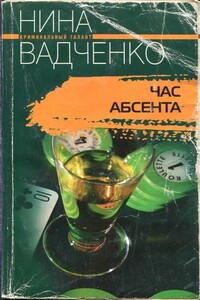
А ведь все так невинно начиналось! Четыре подружки коротали вечерок с бутылочкой «зеленого дьявола» и вели милую дамскую беседу о том… как бы им «грамотно» отправить на тот свет ненавистного шефа. Почему бы не помечтать о приятном в теплой дружеской компании? Все бы ничего, да только шефа вскоре действительно нашли мертвым, к тому же кто-то снял на видео посиделки четырех любительниц абсента. Впрочем, они и сами друг друга теперь подозревают. И распутать этот клубок противоречий по силам только их старой знакомой, неугомонной журналистке Инне Пономаренко…
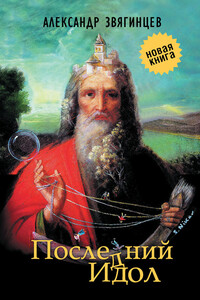
В сборник «Последний идол» вошли произведения Александра Звягинцева разных лет и разных жанров. Они объединены общей темой исторической памяти и личной ответственности человека в схватке со злом, которое порой предстает в самых неожиданных обличиях. Публикуются рассказы из циклов о делах следователей Багринцева и Северина, прокуроров Ольгина и Шип — уже известных читателям по сборнику Звягинцева «Кто-то из вас должен умереть!» (2012). Впервые увидит свет пьеса «Последний идол», а также цикл очерков писателя о событиях вокруг значительных фигур общественной и политической жизни России XIX–XX веков — от Петра Столыпина до Солженицына, от Александра Керенского до Льва Шейнина.